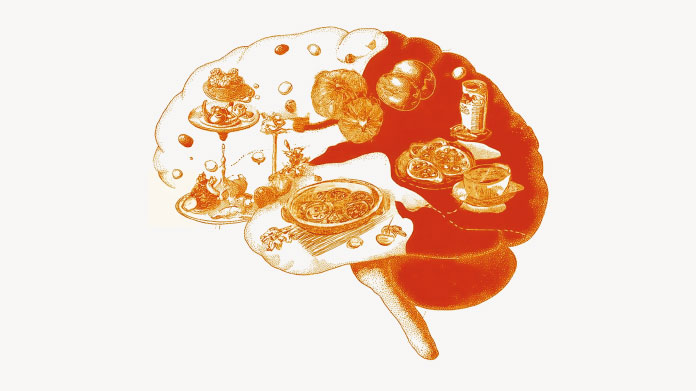Nutritional requirements and recommended intakes: what you need to know
Intake of calories, macronutrients, micronutrients and fibre: finally, a comprehensive article on adult nutritional requirements and recommended intakes.

A healthy diet as defined by the WHO
Before we address the question of calorie intake, let’s first look at what the World Health Organization (WHO) regards as a healthy, balanced diet (1).
According to the WHO, in order to satisfy the body’s nutritional requirements without promoting the development of modern Western diseases (cardiovascular disease, diabetes, obesity, etc), this is what a healthy diet should look like:
- a combination of whole grains and legumes (pulses) to provide a complete profile of amino acids and sufficient non-digestible fibre;
- at least 400g of fruit and vegetables a day, remembering that potatoes, sweet potatoes and other starchy roots do not count as vegetables;
- less than 5 grams of salt a day;
- less than 10% of total energy intake from free sugars (equivalent to no more than 50g of free sugars a day for an adult consuming 2000 calories a day;
- less than 30% of total energy intake from fats, prioritising unsaturated fatty acids from fish, avocados, nuts and dried fruit as well as soybean, rapeseed and olive oils.
- ideally, no more than 10% of total energy intake from saturated fatty acids (meat, dairy products, palm oil and coconut oil).
Calories, basal metabolic rate, activity modifiers
For information:
- 1 gram of protein provides 4 kilocalories (kcal);
- 1 gram of carbohydrate provides 4 kcal;
- 1 gram of fat provides 9 kcal;
- the daily calorie intakes recommended by the WHO are based on a 25 year-old man and woman weighing 65kg and 55kg respectively. These recommendations therefore need to be adjusted according the individual;
- the higher the body fat mass and lower the lean mass, the lower the calorie requirement.
That being said, we must remember that the body is a machine which runs on energy. This energy is provided by food. A calorie is a unit that measures the amount of energy provided by food to the body.
Even when lying down doing nothing, our bodies need energy to perform various functions: to breathe, renew cells, keep the heart beating and the brain working, etc. This is referred to as the basal metabolic rate (2).
For any activity beyond this (moving, carrying, exercising, etc.), the body requires additional calories.
So according to the WHO (3):
- the basal metabolic rate of the average man is 1 kcal/min and slightly less for the average woman;
- light use of the arms while seated (a desk job, for example), increases calorie expenditure by 50%;
- standing, using slow movements, doubles it;
- brisk walking increases it four-fold;
- and physical work (roadworker, miner, carrying heavy loads) can multiply this base calorie output by a factor of 8.
Recommended intakes of calories and macronutrients
On this basis, recommended calorie intakes are as follows:
- around 35 kcal per kg of body weight a day, which is 2000 kcal for an average man and 1800 kcal for an average woman;
- between 12% and 15% of these calories should come from protein (0.83g of protein/kg/day is the amount generally recommended for a healthy adult);
- between 55% and 60% should come from carbohydrates (3.50g of carbohydrates/kg/day is generally recommended for a healthy adult);
- between 30% and 35% should come from fats (0.80g of fats/kg/day is generally recommended for a healthy adult).
Micronutrients
According to the WHO, it’s very difficult to determine exact requirements for protein, vitamins and minerals as they vary from one individual to another. It has, however, established guidelines for ensuring an adequate intake.
These guidelines have been set bearing in mind that:
- excess protein intake is used as a source of energy (though it’s important not to ‘overdose’ on protein to avoid overloading the liver and kidneys);
- excess water-soluble vitamins are eliminated via urine;
- excess vitamin A is stored in the liver;
- excess calcium and iron, not absorbed by the gut, is eliminated in stools (though in the case of kidney problems, take care not to consume too much calcium).
In other words, it’s always better to consume too many vitamins, minerals and trace-elements than too few – without overdoing it, of course (4)!
- vitamin A: between 600 and 800 micrograms a day;
- vitamin B9: 300 micrograms a day;
- vitamin C: 110 milligrams a day;
- vitamin D: 5 micrograms a day;
- calcium: between 900 and 1200 milligrams a day;
- iron: between 9 and 16 milligrams a day;
- magnesium: between 360 and 420 milligrams a day;
- zinc: between 8 and 11 milligrams a day.
To achieve these levels, you need to eat a healthy, balanced diet. You also have the option of taking specific dietary supplements such as:
- Asc2P, a powerful and stable form of vitamin C;
- Vitamin D3 2000 IU in a quick and simple-to-use spray form;
- Coenzymated B Formula, combining 8 available forms of vitamin B;
- Advanced Zinc Lozenges, a suckable zinc supplement;
- Multi Magnesium Formula, a combination of 8 forms of magnesium;
- etc.
Fibre
The health benefits of fibre-rich foods, especially for lowering blood glucose and cholesterol levels, have been recognized by the European Food Safety Authority (EFSA) for some time (5).
But recent studies have also demonstrated benefits for the body’s immune defenses: by influencing the gut microbiota, it seems fibre boosts the immune system.
That’s why the recommended intake of fibre is 25-30g a day for an adult. Some people choose to boost their intake by taking a dietary supplement such as Fructo-Oligosaccharides (6).
References
- https://www.who.int/fr/news-room/fact-sheets/detail/healthy-diet
- BOOTHBY, Walter M. et SANDIFORD, Irene. Basal metabolism. Physiological Reviews, 1924, vol. 4, no 1, p. 69-162.
- Manuel sur les besoins nutritionnels de l’Homme, Organisation Mondiale de la Santé, Série de Monographies n°61
- HIGDON, Jane, et al. An evidence-based approach to vitamins and minerals health benefits and intake recommendations. Thieme Medical Publishers, Inc., 2003.
- https://cordis.europa.eu/article/id/150431-dietary-fibres-to-boost-the-immune-system/fr
- ANDERSON, James W., BAIRD, Pat, DAVIS, Richard H., et al. Health benefits of dietary fiber. Nutrition reviews, 2009, vol. 67, no 4, p. 188-205.
Keywords
3 Days
My skin is clearing up nicely!
Pretty good for my skin so far.
Christian
6 Days
The new packaging is excellent
The new packaging is excellent - finally! No more squashed boxes and torn envelopes.
GORAN
6 Days
Great Product
Great Product
Larry Garrett
11 Days
Quick shipping
Quick shipping; good price. No issues!
Mary McCarty
12 Days
Thr product is very good and is helping…
Thr product is very good and is helping me on my health. Then is always on time
LUGO Luz
15 Days
Buying was fine
Buying was fine. I had problems with the website not recognizing my login info, and had to call to get it fixed. Other than that, everything was good.
David S. Clark
15 Days
Your super maca and super ginseng are…phenomenal
Your super maca and super ginseng are phenomenal supplements that compliment each other when taking them together. Fantastic feeling of well-being and lots of mid day energy without the crash.
Keith Mason
18 Days
I have had amazing results with every…
I have had amazing results with every supplement I've purchased. I am extremely satisfied with this company
kirstin Torres
18 Days
Fine products
Fine products . They are on the leading edge of online supplements. The only issue -so far-is they sometime run out of subscription items.
Jason Argos
20 Days
The ordering process is very user…
The ordering process is very user friendly and the products always come in a timely manner.
CARTER Rhonda
22 Days
The price for Dr
The price for Dr. Pero's AC-11 is reasonable and in line with his views. (my former colleague). Keep it pure.
CAMPBELL Clayton
24 Days
Right on every time.
Right on every time.
Arthur Nicholas
27 Days
They are cheaper than everyone else and…
They are cheaper than everyone else and the shipping was fast. Great company.
Patricia Adams
34 Days
Availability of quality health…
Availability of quality health supplements and it's wide variety is impressive. Ordering is seamless and shipping even during the holidays is well streamlined.
Mohamad Hussein
48 Days
A Product worth waiting for when not…
A Product worth waiting for when not available and then arriving as a surprise!
DOMINIC




